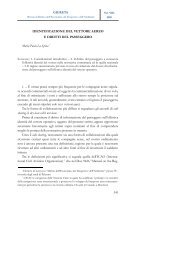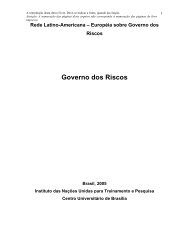YEARS OF EUROPEAN ONLINE ANNÉES DE EN LIGNE ...
YEARS OF EUROPEAN ONLINE ANNÉES DE EN LIGNE ...
YEARS OF EUROPEAN ONLINE ANNÉES DE EN LIGNE ...
You also want an ePaper? Increase the reach of your titles
YUMPU automatically turns print PDFs into web optimized ePapers that Google loves.
universities: turin (Italy), which was the lead institution, Barcelona (Spain),<br />
Lyon 3 (france), münster (Germany), Nijmegen (the Netherlands), Oxford (the<br />
United Kingdom) and warsaw (Poland). within this framework, we have received<br />
competent young post-doctoral scholars from these universities in turin,<br />
and we asked them to come up with a research programme on legal terminology.<br />
the background of this study is the following. we were not satisied with<br />
just translating words. we were not satisied, because you can easily translate<br />
words without really catching the meaning of legal terms. you can translate<br />
the German term Besitz using the Suisse term Besitz. Same language, same<br />
name. But the institutions are different, because the meaning of the German<br />
term Besitz — position — is not really the same in terms of the content of the<br />
rule. the same applies to many other very well-known examples.<br />
So we tried to address this issue, not in the sense of having a dictionary<br />
— a multilingual dictionary — but in the sense of having a semantic tool.<br />
‘Semantic tool’ means that we wanted to take into account the context in<br />
which terms are used and to see how these terms were deined in the different<br />
levels of European legislation, European case-law, national implementing acts<br />
and national case-law. In order to make this task a bit more challenging, we<br />
also added some doctrinal notes and comments.<br />
Research on legal terminology is something different from research on<br />
legal translation. It is also a priority identiied by the European Commission. In<br />
its communication of 2003 on ‘Updating and simplifying the Community acquis’<br />
( 2 ), the Commission indicates the need for ‘rewriting legal texts to render<br />
them more coherent and understandable’ and for overcoming ‘potential legal<br />
uncertainty resulting from inconsistent deinitions or terminology’. It is therefore<br />
the Commission itself which recognises that there is a problem in terminology<br />
regarding the acquis.<br />
however, regardless of the way terminology in which is used, the deinition<br />
of terminology itself is not coherent. Even in Commission documents the<br />
word ‘terminology’ has different meanings: sometimes, it is meant as a kind of<br />
substitute for searching common principles, sometimes it is used as a syno-<br />
( 2 ) Communication from the Commission to the Council, the European Parliament, the<br />
European Economic and Social Committee and the Committee of the Regions —<br />
Updating and simplifying the Community acquis, COm(2003) 71 inal.<br />
01_2007_5222_txt_ML.indd 130 6-12-2007 15:14:00


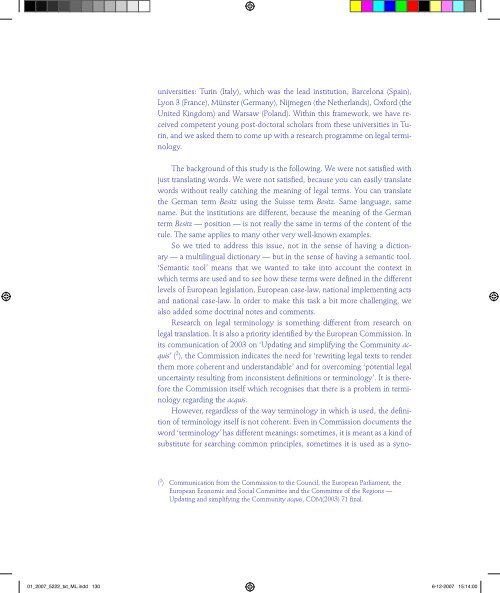
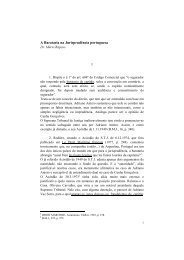
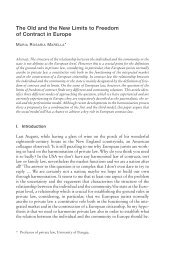

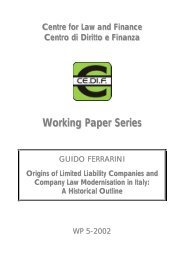
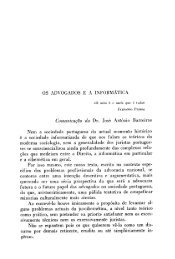
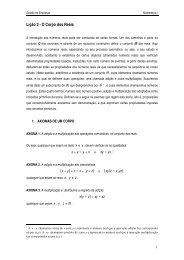
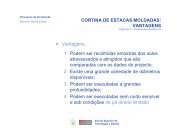
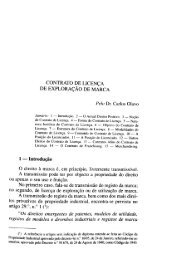
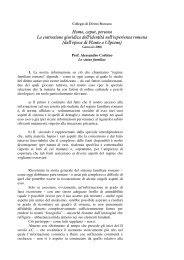
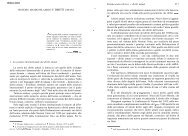

![Luigi Sapio Nozione di islām La parola “islām” [ ] è il mas.dar1 ...](https://img.yumpu.com/15836073/1/185x260/luigi-sapio-nozione-di-islam-la-parola-islam-e-il-masdar1-.jpg?quality=85)
